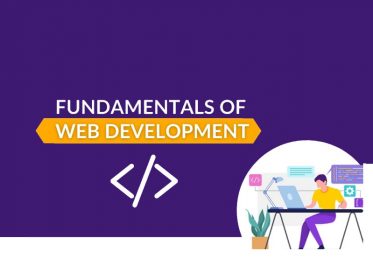Web Fundamentals

About Course
Web Fundamentals is a term used to describe the foundational knowledge and skills required for web development. It encompasses a broad range of topics and technologies related to creating and designing websites and web applications.
Key components of Web Fundamentals include:
1. HTML (Hypertext Markup Language): The markup language used to structure and define the content of web pages.
2. CSS (Cascading Style Sheets): The language used for styling and formatting the visual presentation of web pages.
3. JavaScript: A programming language used for adding interactivity and dynamic behavior to web pages.
4. Responsive Web Design: Designing websites that adapt and function well on different devices and screen sizes.
5. Web Accessibility: Ensuring that websites are accessible and usable by people with disabilities.
6. Web Performance: Optimizing web page loading times and overall performance for better user experience.
7. Version Control: Using version control systems like Git to manage code changes and collaboration.
8. Web Hosting and Deployment: Understanding how to host and deploy websites on web servers.
9. Web Security: Implementing security measures to protect websites from common web vulnerabilities.
Web Fundamentals is an essential starting point for aspiring web developers as it lays the groundwork for understanding web technologies and concepts. As developers progress, they can delve deeper into specific technologies and frameworks for more advanced web development projects.
Course Content
Introduction to Web Development
-
Introduction to HTML, CSS, and JavaScript
-
Setting up a development environment (text editor, browser, etc.)
-
Basics of web hosting and deployment

